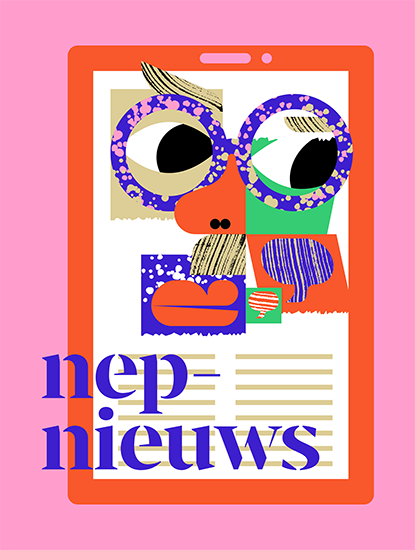Fake news and corona, a match made in heaven
First of all: how did fake news manage to spread almost as quickly as the coronavirus itself? This was largely thanks to the insecurity the pandemic brought about. People with unsavoury intentions eagerly abused that insecurity to play on people’s emotions and their needs for answers and solutions. This makes us more susceptible to fake news and allows misleading information to spread like wildfire on social media.
From memes to deception: 3 phases
The way fake news about the coronavirus seeped through into our society can be regarded in 3 different phases, each with their own intent:
Humour
When the corona crisis had only just begun, there wasn’t that much breeding ground for fake news: in the first months countries like Italy and China were the hardest hit, and there wasn’t as much fear and insecurity yet in Belgium. It was still just a distant issue that didn’t affect us, but that warranted laughing about every now and again.
This elicited all sorts of cartoons, memes and satirical articles that were widely shared on social media. All innocent in intent, but not everyone immediately understands that they are dealing with satire. Especially when someone shares a meme where it’s no longer clear who the original creator was, and all the context of the medium is stripped away. In that sense, a first type of fake news arises by accident. But it’s also important to note that satire and humour are sometimes used to intentionally mislead people as well.
Money
As the corona crisis evolved, uncertainty about symptoms, solutions and virus spread increased. People were asking more and more questions, and some saw an opportunity to monetise this fear. Suddenly online advertisements popped up purporting to sell the magical cure for Covid-19. Or misleading, overly promising article titles on social media, which turned out to be disappointments once you clicked them. These types of clickbait titles help websites earn substantial advertisement revenue from every website visitor.
The last type of fake news for personal gain is also the most dangerous one: phishing. In that case people with malicious intent pretend to represent a trustworthy organisation in order to pry your credit card details from you. During the pandemic many people received government emails asking them to input their details because they were entitled to compensation. Unfortunately those emails weren’t sent by the government at all, but by criminals.
Politics
As the corona crisis grew into a full-on pandemic, a third reason to spread fake news popped up: propagating certain ideological positions or political discourse. The message was often linked to the origin of the novel coronavirus and the desire for a scapegoat.
In China the idea took hold that an American soldier had spread the virus, while some Americans claimed that the Chinese had spread the virus on purpose to deal with overpopulation. In Belgium politicians also used the coronavirus to push their own agenda: Vlaams Belang politician Filip Dewinter pointed the finger at refugees as the cause of the virus’ spread, which conveniently supported his anti-immigration discourse.
